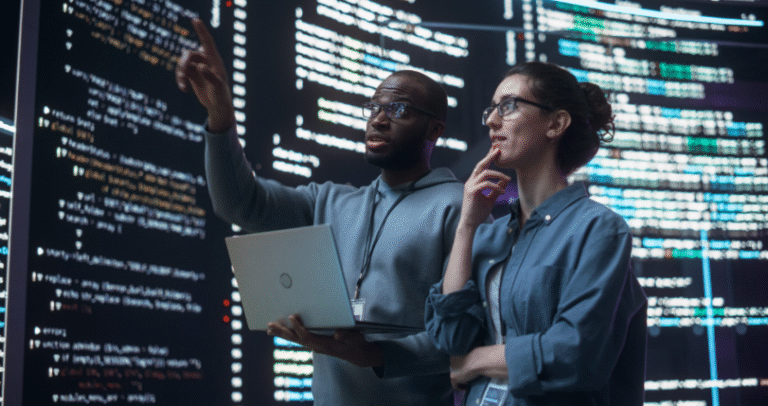AI vs. Human Intelligence: Who Wins the Innovation Race?
In the digital age, the debate around “AI vs. Human Intelligence: Who Wins the Innovation Race?” has become increasingly relevant. As artificial intelligence (AI) continues to evolve, many wonder whether machines will outpace human ingenuity or whether human intellect will maintain its edge. This article explores the strengths and limitations of both AI and human intelligence and how they intersect in driving innovation.
1. Understanding the Core: AI vs. Human Intelligence: Who Wins the Innovation Race?
At the heart of the debate lies a key question: can machines truly replicate or surpass the human mind? AI can process massive amounts of data quickly, recognize patterns, and make predictions with great accuracy. On the other hand, human intelligence is known for emotional depth, moral reasoning, and creative problem-solving — traits that are challenging for AI to emulate fully.
2. Innovation Powered by Artificial Intelligence
AI is reshaping industries by automating complex tasks, improving decision-making, and powering technologies such as self-driving cars, voice assistants, and advanced diagnostics in healthcare. In this regard, AI vs. Human Intelligence: Who Wins the Innovation Race? may seem to favor machines — especially when it comes to speed, data analysis, and scalability. AI doesn’t tire, and it learns continuously from vast datasets, improving with time.
3. The Irreplaceable Role of Human Intelligence
Despite AI’s rapid advancements, human intelligence remains critical in areas requiring empathy, ethics, and abstract thinking. Artists, scientists, entrepreneurs, and educators bring vision and context that AI lacks. In the discussion of AI vs. Human Intelligence: Who Wins the Innovation Race?, it becomes evident that while AI excels at processing, humans drive the purpose and direction of innovation.
Read more: Top 10 Emerging Technologies That Will Shape the Future
4. Collaboration Over Competition
Instead of seeing it as a battle, many experts advocate for collaboration. AI tools can augment human capabilities, enhancing productivity and enabling people to focus on higher-order tasks. In this symbiotic relationship, innovation accelerates. Ultimately, the question of “AI vs. Human Intelligence: Who Wins the Innovation Race?” may not have a winner — but rather, a powerful partnership that shapes the future.
FAQs
Q1: Can AI fully replace human intelligence in the workplace?
A: Not entirely. While AI can automate many tasks, roles that require emotional intelligence, ethics, and creativity still depend on human insight.
Q2: What are some examples of AI enhancing human innovation?
A: AI helps doctors detect diseases earlier, assists architects in designing smarter buildings, and supports researchers in analyzing complex data more efficiently.
Q3: Is AI better than humans at learning?
A: AI learns quickly from structured data but lacks the intuitive learning and reasoning skills of humans, especially in unfamiliar scenarios.
Q4: What is the future of innovation with AI and humans working together?
A: The future lies in collaboration — where AI handles data-driven tasks and humans provide strategic thinking and emotional understanding.






